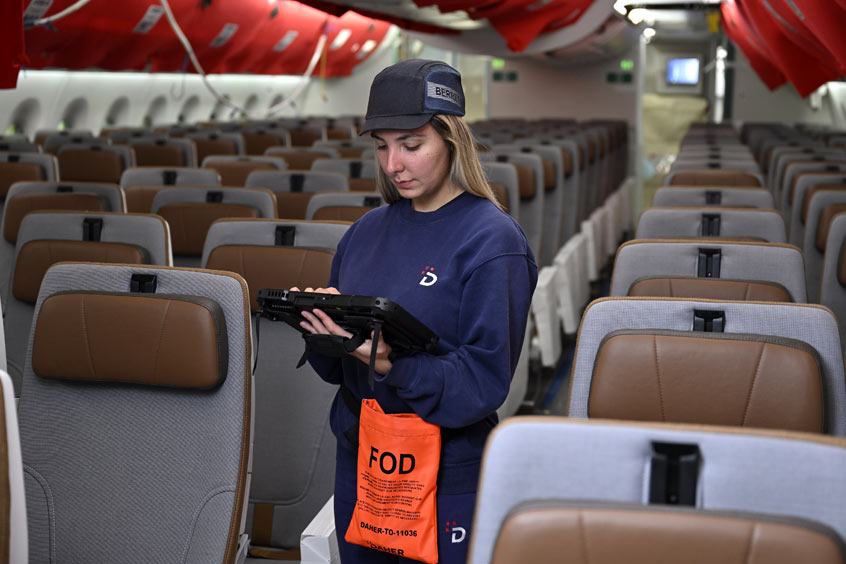PRESS RELEASE
Issued by: Wright Electric
Wright Electric announced today the start of its electric propulsion development program for its flagship 186 seat electric aircraft, named Wright 1.
In order to achieve the commercial flight capability of the Wright 1, a 186 seat electric aircraft, Wright is engineering electrical systems at the megawatt scale by building a 1.5 MW electric motor and inverter at 3 kilovolts. These components will form the powerplant of Wright's revolutionary Wright 1 aircraft and pave the way for a future of zero emissions flight worldwide.
Wright intends to conduct ground tests of its motor in 2021 and flight tests in 2023. The company expects entry into service of its flagship Wright 1 in 2030. The motor and power system development program is the next step towards building its narrowbody class aircraft. Wright will be simultaneously conducting tests on its fuselage to improve aerodynamics. Numerous government agencies in the United States are funding research into electric aviation including NASA and Air Force Research Laboratory.
On January 30, Wright demonstrated a preview of its electric motor at its press event in New York, NY. Wright also announced that it is moving its headquarters to Albany, NY to take advantage of the world-class engineering talent there.
easyJet, Europe's leading airline and partner to Wright Electric, welcomed this announcement as easyJet has a long tradition of efficient flying. Through their dedication to choosing efficient aircraft and their approach to flying them, they've already become more efficient than many airlines. Since 2000, easyJet has reduced the carbon emissions for each kilometer flown by a passenger by over one-third (33.67%) and has a target to reach a 38% reduction by 2022. easyJet also became the first major airline to offset the fuel from all of its flights. Their priority is to continue reducing their carbon footprint in the short-term while they support the development of innovative technology to accomplish their long-term goal of carbon-free aviation, which Wright is making possible.
Johan Lundgren, CEO of easyJet, commented:
“This is another crucial step for our partner Wright Electric to move towards the introduction of commercial electric aircraft and it is exciting to see their ambitious timeline for testing and entry into service.
“Battery technology is advancing at pace with numerous US government agencies now funding research into electric aviation– all of these developments help us to more clearly see a future of more sustainable operations.
“We know it is important to our customers that we operate as sustainably as possible – our carbon offsetting programme has been positively received by our customers and we have now offset more than nine million passenger journeys – but we are clear this is an interim solution until new technologies become available and we can see more clearly than ever a future that is not exclusively reliable on jet fuel.”
Jeffrey Engler, CEO of Wright Electric, added:
“Wright Electric is dedicated to bringing low-emissions 186 seat electric planes systems to market. Wright Electric's mission is to make commercial aviation greener, and our megawatt engine program is the next step in making our mission a reality.”
Matt Rogers, founder of Incite.org, commented:
"This is a milestone for Wright Electric and for the future of aviation," said Matt Rogers, founder of Incite.org. "Addressing the climate crisis requires innovation and partnership, especially in the hardest areas to decarbonize. Wright Electric's progress demonstrates how both new and established aviation leaders can come together to pave the way for low-emissions travel and set an example for others."
Ehtisham Siddiqui, Vice President and General Manager of Controls and Avionics Solutions at BAE Systems, commented:
“We are discussing collaboration opportunities with Wright Electric on the development of flight controls and energy management systems for its electric aircraft,” said Dr. Ehtisham Siddiqui, Vice President and General Manager of Controls and Avionics Solutions at BAE Systems. “Our new development builds on decades of experience in both domains, as we strive to help shape the future of flight.”
| Contact details from our directory: | |
| Wright Electric | Airframer |
| BAE Systems | Electronic Components |
| Related aircraft programs: |
| Wright Electric Wright Spirit |
| Related directory sectors: |
| Engines |
Weekly news by email:
See the latest Bulletin, and sign up free‑of‑charge for future editions.
VANTAGE launches European modular tactical drone project

Daher deepens Airbus involvement on A321 and A350

Expanding Sonex ships first Highwing tail kits

British Army selects contenders for autonomous helicopter ‘wingmen’